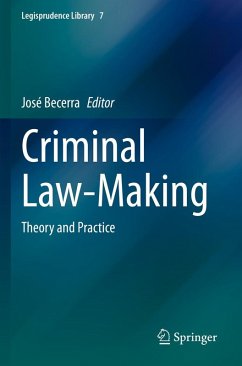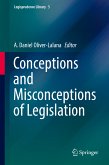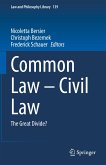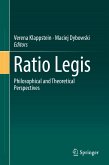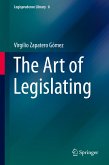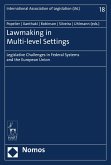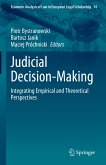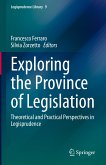This book intends to contribute to the consolidation of the new approach to lawmaking that has taken place in the last 20 years in legal philosophy and legal theory, spreading to other legal fields, especially criminal law. This new legislation science focusing on criminal problems has triggered a growing interest in the field, a dynamic which has led to a long-needed convergence of disciplines such as administrative law, criminal law, criminology, political science, sociology and, of course, legal philosophy to contribute to a more rational decision-making process for the construct of criminal laws.
With the intention to continue on with the building of a solid "Criminal Legislation Science", this work presents scholars, lawmakers and students various emblematic approaches to enrich the discussion about different and promising tools and theoretical frameworks.
Dieser Download kann aus rechtlichen Gründen nur mit Rechnungsadresse in A, B, BG, CY, CZ, D, DK, EW, E, FIN, F, GR, HR, H, IRL, I, LT, L, LR, M, NL, PL, P, R, S, SLO, SK ausgeliefert werden.

